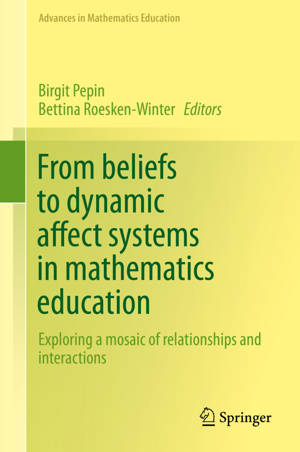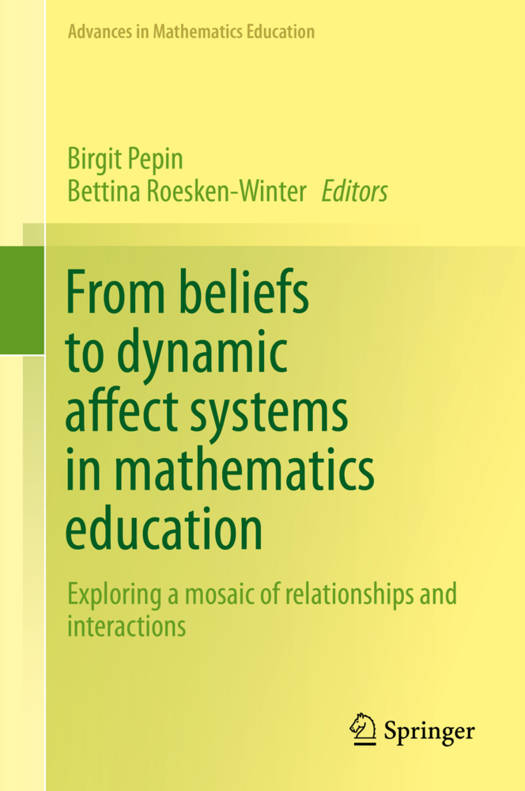
- Retrait gratuit dans votre magasin Club
- 7.000.000 titres dans notre catalogue
- Payer en toute sécurité
- Toujours un magasin près de chez vous
- Retrait gratuit dans votre magasin Club
- 7.000.0000 titres dans notre catalogue
- Payer en toute sécurité
- Toujours un magasin près de chez vous
From Beliefs to Dynamic Affect Systems in Mathematics Education
Exploring a Mosaic of Relationships and Interactions
Description
This book connects seminal work in affect research and moves forward to provide a developing perspective on affect as the "decisive variable" of the mathematics classroom. In particular, the book contributes and investigates new conceptual frameworks and new methodological 'tools' in affect research and introduces the new field of 'collectives' to explore affect systems in diverse settings.
Investigated by internationally renowned scholars, the book is build up in three dimensions. The first part of the book provides an overview of selected theoretical frames - theoretical lenses - to study the mosaic of relationships and interactions in the field of affect. In the second part the theory is enriched by empirical research studies and provides relevant findings in terms of developing deeper understandings of individuals' and collectives' affective systems in mathematics education. Here pupil and teacher beliefs and affect systems are examined more closely. The final part investigates the methodological tools used and needed in affect research. How can the different methodological designs contribute data which help us to develop better understandings of teachers' and pupils' affect systems for teaching and learning mathematics and in which ways are knowledge and affect related?
Spécifications
Parties prenantes
- Editeur:
Contenu
- Nombre de pages :
- 407
- Langue:
- Anglais
- Collection :
Caractéristiques
- EAN:
- 9783319068077
- Date de parution :
- 04-11-14
- Format:
- Livre relié
- Format numérique:
- Genaaid
- Dimensions :
- 156 mm x 234 mm
- Poids :
- 771 g






